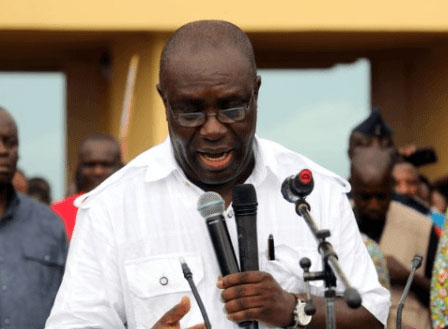Dr Anthony Yaw Baah, TUC General Secretary
THE GHANA Trades Union Congress (GTUC) has called for quality capacity-building towards negotiations and management of public agreements in Ghana.
At a day’s seminar for TUC leadership sponsored by Rosa Luxemburg Stiftung based in South Africa, Bro Alexander Nyarko-Opoku, chairman of the TUC, said most politicians who represented Ghana during most of her public agreements lacked the expertise to broker such deals for the country.
According to him, such instances have culminated in great losses for the country instead of gains, because the people who bargained for Ghana did not have any technical know-how on the issues that were put before them.
Bro Nyarko-Opoku said “Most of these people were politicians who wielded power and thought they were better placed to bargain for the country, whereas, they did not have any expertise whatsoever, in such matters that were discussed.”
“Even though we had good negotiators to do those bidding, they were ignored,” he stated.
He therefore called for a re-look into all public arrangements for the necessary updates and fine-tuning to be effected to the advantage of Ghana.
Dr Kwabena Nyarko Otoo, Director of LRPI, TU, in a presentation on a research analysis and management of public agreements in Ghana, said there were clear capacity constraints to effective negotiations of public agreements in Ghana while also there were legal constraints. Also, he pointed out that the legislative rationale for commercial privacy was frequently abused while also incentives were constrained in public agreements negotiated.
“Why does the Minister completely ignore the concerns of the Minerals Commission and why does Parliament suspend its standing orders just to give Gold Fields a new development agreement?”, he quizzed.
“Countries that have negotiated their public agreements well have benefitted,” he said adding that from the good resources Ghana has naturally, “No Ghanaian should be poor”.
He averred that “Politicians have been given so much power that they have pushed good technocrats to the background to speak on what they know absolutely nothing about for Ghana.”
Philippa Larsen, president of the Ghana National Association of Teachers (GNAT), in a statement, said it was about time Ghanaians shirked the habit of politicising national issues and began making good arguments against any misconduct or parochial preferences of political leaders irrespective of which political group they belonged.
She therefore called on Ghanaians to come out of their political shelves, put on their national lenses and begin to point out policies that are not working in the interest of the country so those could be scrapped.
Such agreements took place during the privatisation of most state enterprises since 1980. Ghana Telecom privatisation led by a former President, the military agreement between Ghana and the US to build their base in Ghana and the MPS saga at the country’s ports, are among the many of such agreements.
Dr Anthony Yaw Baah, Secretary General of the TUC, in a remark, called on leaders of the TUC to not just speak against ill-negotiated agreements but ensure they proffer better alternatives to help steer Ghana on course to effective development.
BY Samuel Boadi


